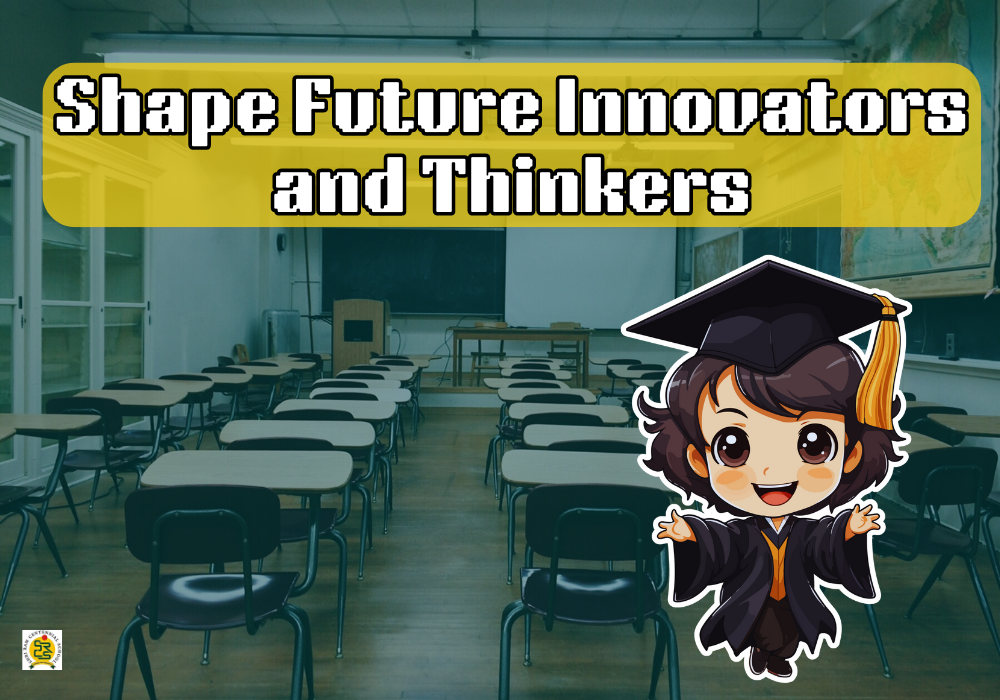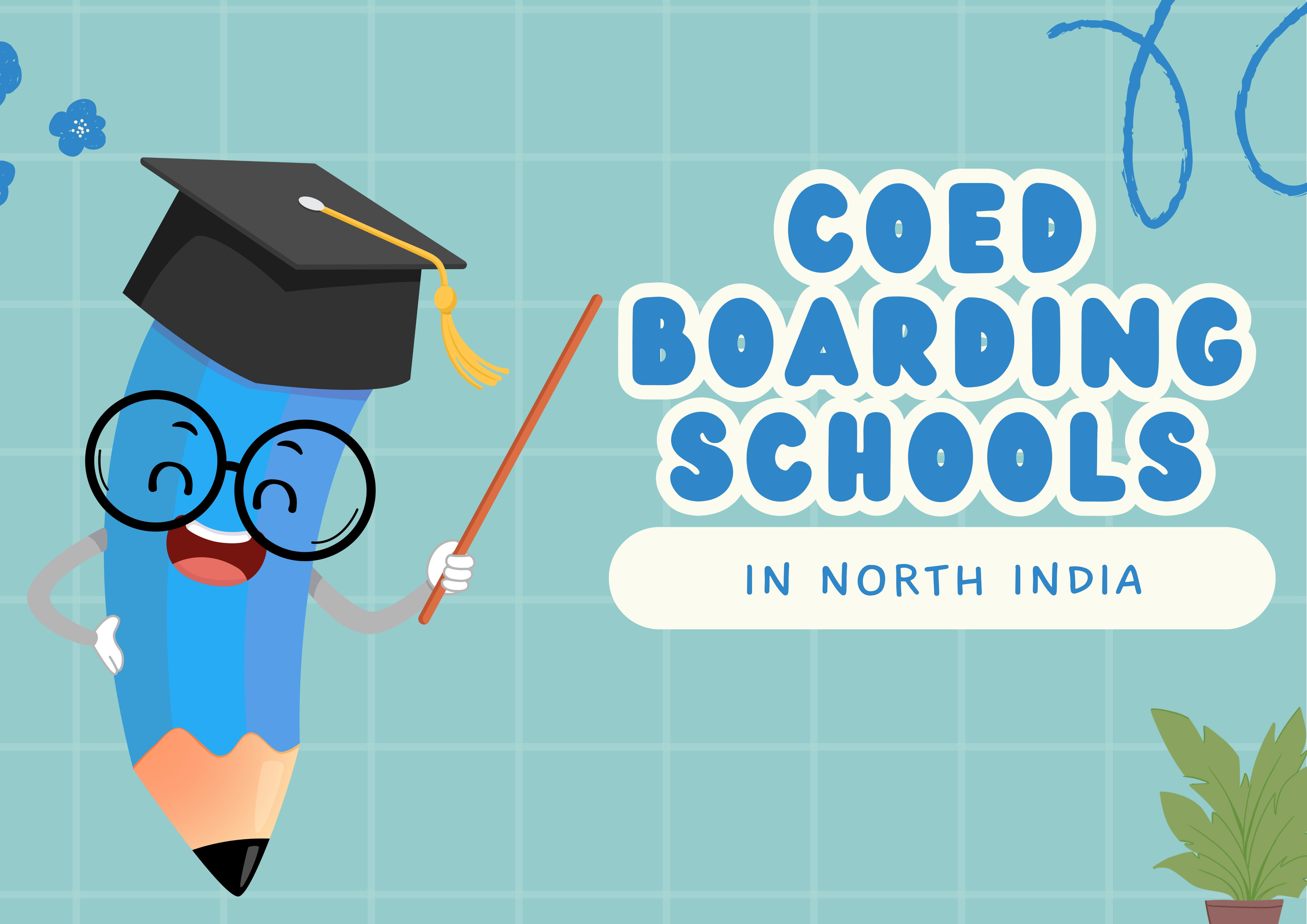Boarding schools in India have long been regarded as centers of academic excellence and holistic development. These institutions do more than just prepare students for exams; they foster a spirit of innovation, critical thinking, and leadership.
In an ever-evolving world where creativity and adaptability are key, boarding schools play a pivotal role in shaping future innovators and thinkers. This article explores how boarding schools nurture students to become tomorrow’s visionaries and problem solvers.
A Learning Environment That Fosters Creativity
One of the biggest advantages of boarding schools is the immersive learning environment they offer. Students live on campus, which means they are constantly exposed to an atmosphere of learning and intellectual curiosity. This 24/7 environment encourages students to explore their interests and engage in creative activities beyond the traditional classroom setting.
Developing Future Innovators Through Interdisciplinary Learning

At boarding schools, innovation is not confined to science or technology; it spans across all disciplines. These schools emphasize interdisciplinary learning, where subjects like mathematics, science, and literature are interconnected. Students are encouraged to draw connections between different fields, enabling them to think creatively and approach problems from multiple angles.
For instance, a student studying environmental science might collaborate with peers in the arts to create awareness campaigns on sustainability. These collaborations spark creativity and provide a platform for students to express their innovative ideas in unique ways.
This broad spectrum of learning helps boarding schools cultivate future innovators who are well-rounded and capable of tackling real-world challenges.
The Role of Extracurricular Activities in Nurturing Thinkers
Beyond academics, extracurricular activities play a vital role in shaping students’ creative and intellectual abilities. Boarding schools in India offer a wide range of extracurricular opportunities, from debating and coding clubs to music and theater. These activities help students develop essential skills such as critical thinking, problem-solving, and leadership—skills that are crucial for future innovators.
In debating clubs, for example, students learn to view issues from different perspectives, articulate their thoughts clearly, and think on their feet. Meanwhile, participating in drama or music helps students unlock their creativity and emotional intelligence. Such diverse experiences shape students into holistic thinkers, able to innovate in various fields.
Individual Attention and Mentorship: A Catalyst for Innovation
One of the defining characteristics of boarding schools in India is the individualized attention students receive from teachers and mentors. Smaller class sizes mean that each student is given the opportunity to explore their unique strengths and interests.
This personalized approach allows teachers to identify budding innovators early and nurture their potential.
In addition, boarding schools often assign mentors to students, providing them with continuous guidance and support. These mentors are not just academic advisors; they help students navigate their personal development, fostering a growth mindset.
This strong mentorship culture is key in helping students become confident, forward-thinking individuals ready to tackle the challenges of the future.
Encouraging Risk-Taking and Resilience
Innovation thrives on the willingness to take risks and learn from failure. Boarding schools in India promote a culture where students are encouraged to experiment, take calculated risks, and push beyond their comfort zones.
Whether it’s through scientific experiments, entrepreneurial projects, or creative writing, students are given the freedom to try, fail, and try again.
This emphasis on resilience and perseverance is crucial for developing future innovators. By allowing students to experience both success and failure, boarding schools instill in them the grit and determination needed to overcome obstacles.
This mindset not only fuels their academic achievements but also prepares them for the unpredictable nature of the real world.
Collaboration and Teamwork: The Foundation for Innovation
In today’s interconnected world, innovation rarely happens in isolation. Boarding schools place a strong emphasis on collaboration and teamwork, preparing students to thrive in environments where collective problem-solving is key.
From group projects to team-based extracurricular activities, students learn how to work effectively with others, leverage diverse skill sets, and innovate through collaboration.
Teamwork fosters a sense of community and shared purpose, both of which are essential for driving innovation. Boarding school students are often involved in group projects that require them to brainstorm ideas, divide tasks, and present solutions together.
This collaborative approach not only enhances their interpersonal skills but also encourages them to think creatively when faced with complex problems.
State-of-the-Art Facilities That Inspire Innovation
Many boarding schools in India boast state-of-the-art facilities designed to inspire innovation. From modern science labs to fully equipped art studios and technology centers, these schools provide students with the tools and resources they need to explore their passions and push the boundaries of what’s possible.
Access to cutting-edge technology, such as 3D printers, robotics kits, and digital design software, allows students to bring their creative ideas to life. Whether they’re building prototypes, designing apps, or creating art installations, students are encouraged to think outside the box and experiment with new concepts. These experiences lay the foundation for the future innovators of tomorrow.
Global Exposure and Cultural Diversity
Boarding schools in India are often melting pots of cultural diversity, with students from different regions, countries, and backgrounds coming together. This exposure to different perspectives and ideas broadens students’ worldviews and fosters an environment of open-mindedness and creativity.
The ability to understand and appreciate different cultures is a critical skill for future innovators, who must navigate a globalized world.
Moreover, many boarding schools offer international exchange programs, allowing students to travel abroad and gain firsthand experience of different educational systems and cultures. This global exposure enhances their critical thinking abilities and helps them develop innovative solutions to global challenges.
Preparing Future Innovators for a Technological World

The role of technology in shaping future innovators cannot be overstated. Boarding schools in India recognize this and are integrating technology into their curricula in meaningful ways. From coding and robotics classes to virtual reality-based learning, these schools are equipping students with the skills needed to thrive in a tech-driven world.
More importantly, boarding schools teach students how to use technology not just as consumers, but as creators and innovators. Whether it’s designing their own apps, programming robots, or creating digital art, students learn to harness technology to bring their ideas to life.
This emphasis on hands-on, project-based learning ensures that they are prepared to lead the next wave of technological advancements.
A Legacy of Leadership and Innovation
Many of India’s most prominent innovators and thinkers have been products of the country’s top boarding schools. These institutions have a long-standing tradition of cultivating leadership, creativity, and intellectual curiosity among their students.
Alumni from prestigious boarding schools have gone on to become leaders in fields ranging from technology and science to the arts and social justice.
By nurturing these qualities in students, boarding schools create a legacy of innovation that extends far beyond the classroom. They instill in their students a lifelong love of learning, curiosity, and a drive to make a difference in the world—qualities that are essential for future innovators.
Conclusion:
Boarding schools in India are not just places of academic rigor; they are breeding grounds for creativity, collaboration, and leadership. Through a combination of innovative teaching methods, cutting-edge facilities, personalized mentorship, and a culture of resilience, these schools are preparing students to become the future innovators and thinkers the world needs.
By providing a platform for students to explore their interests, take risks, and think critically, boarding schools play a vital role in shaping the leaders and visionaries of tomorrow. For parents and students alike, boarding schools in India offer the tools and opportunities necessary to inspire and nurture the next generation of innovative minds.










